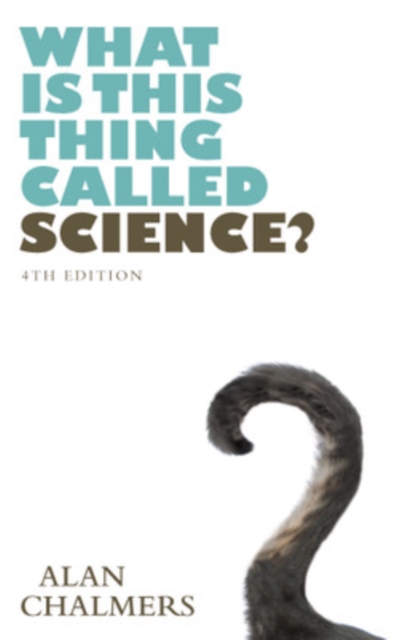
What Is This Thing Called Science? PDF
by Alan Chalmers
Description
A brand new edition of an internationally renowned science bestseller
Now well into its fourth decade, What is this thing called science? has become something of a classic the world over, available in nineteen languages. Each decade Alan Chalmers has drawn on his experience as a teacher and researcher to improve and update the text. In his accessible style, Chalmers illuminates the major developments in the field over the past few years.
The most significant feature of this new, fourth, edition is the addition of an extensive postscript, in which Chalmers uses the results of his recent research into the history of atomism to illustrate and enliven key themes in the philosophy of science. Identifying the qualitative difference between knowledge of atoms as it figures in contemporary science and metaphysical speculations about atoms common in philosophy since the time of Democritus proves to be a highly revealing and instructive way to pinpoint key features of the answer to the question 'What is this thing called science?'
This new edition ensures that the book holds its place as the leading introduction to the philosophy of science for the foreseeable future.
"Successive editions have retained and refined its clear, engaging and witty discussions of the most important topics in the field, incorporating the best new research in the field. This latest edition also adds a valuable layer of grounding in the history of science, particularly based on Chalmers' recent extensive research on the history of atomism."
Hasok Chang, Department of History and Philosophy of Science, Hans Rausing Professor of History and Philosophy of Science, University of Cambridge, UK
Information
-
Download - Immediately Available
- Format:PDF
- Pages:316 pages
- Publisher:McGraw-Hill Education
- Publication Date:16/06/2013
- Category:
- ISBN:9780335262793
Other Formats
- Paperback / softback from £31.99
Information
-
Download - Immediately Available
- Format:PDF
- Pages:316 pages
- Publisher:McGraw-Hill Education
- Publication Date:16/06/2013
- Category:
- ISBN:9780335262793






